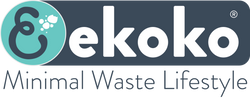
What about ingredients sourced from animals?
Buying products free from animal sourced ingredients can be a minefield
Animal testing is not the only thing to look out for when buying vegan-friendly cosmetics and skincare products. You may think brands have to be clear about whether their products include parts of animals or their secretions but that is a misconception. In fact it can be quite difficult to know what is and what is not vegan friendly.
Just to increase confusion: some ingredients that can be derived from plants or animals have the same name - without the source identified (i.e. squalene).
The only option here is to look up the manufacturer/brand’s website and see if there is more detailed information.
Below is a list of some of the most common animal ingredients, and if possible their vegan counterparts.
1. Stearic Acid
Obtained from the fat of slaughtered animals. Used as an emulsifier and cleansing agent in cosmetics. Stearic acid can also be derived from vegetable fats.
2. Carmine
Red dye obtained from crushed female cochineal scale insects, more then 150.000 insects may be needed for 1 kg of the dye. Used as a colorant in cosmetics, often in lipsticks, blushes and nail polish
3. Shellac
Dark brown resin from the excretions of lac insects, collected from the branches the insects live on. It is used in nail laquers and polishes and some hair laquers. Hundreds of thousands of these insects are killed to create small amounts of this product.
4. Guanine
Pearlescent constituent of fish scales industrially produced from the scales and skin of fish. Used as an opacifier and colorant (pearlescent pigment) in cosmetics. Think about sparkly nail polish, eyeshadow, highlighters, bronzers and blushes.
5. Squalene
Obtained from shark liver oil. Used as an antistatic emollient. Commonly used in lip balm, deodorants, moisturizers and hair conditioner among other products.
Vegan squalene exists and is derived from olives and wheat germ.
6. Tallow
Rendered from (melted out of) fatty tissues primarily from slaughterhouse waste. Used in many cosmetic ingredients as emulsifiers, surfactants and conditioners.
7. Animal hair
Obtained by shearing or plucking the fur of living or killed animals. This can be found in make-up brushes and is often sourced from fox, sable, horse, goat, mink and squirrel. Particularly mink is also sometimes used in false eyelashes. Synthetic options are available.
8. Hydrolized silk
Chemical altered proteins from silk that was obtained from boiling and killing silkworms. Used as an antistatic humectant in cosmetics
9. Lanolin
The fatty substance found naturally on sheep’s wool. Obtained by washing out the wool of shorn or slaughtered sheep. Used as an antistatic emollient and is a common ingredient in lip products (balms, sticks, glosses), as well as hair products.
Synthetic (and plant-based) lanolin exists as well
10. Keratin
Obtained from ground horns, hooves, claws, nails, hair, scales and feathers of animals. Used as a hair and skin conditioner and is often found in strengthening nail and hair products. Soya protein and almond oil are used as vegan alternatives.
11. Beeswax/Honey
Beeswax is secreted by bees used to build their honeycomb. Honey is food ade by bees for nectar from flowers. Used as an emollient, moisturizer, soothing agent and emulsifier in cosmetics. It is commonly used in mascara too.
Alternatives exist in the form of plant and soya waxes.
12. Lactoferrin
Iron binding protein from milk that was obtained from the mammary glands of female mammals. Used as a skin and hair conditioner cosmetics
13. Collagen
Used in lots of anti-ageing products, as well as lip plumping items, this fibrous protein is derived from animal tissue, bone, skin, or ligaments - often from cows. The efficacy of collagen, in terms of whether it can even penetrate the skin, is questionable.
Plant-based alternatives include soya protein and almond oil.
14. Elastin
Often used in the same kind of products as collagen, elastin is also a protein extracted from the muscles, ligaments and aortas of animals. Vegan alternatives include hyaluronic acid and MSM (Methylsulfonylmethane)
As you can see it is not easy to avoid these ingredients as most of the big brands and certainly the industrial products are using them. We also do not pretend that this list is complete because the research and development departments from the large producers are always looking for better alternatives as they see it.
Honestly here at ekoko we only use one of the listed ingredients and that is beeswax. We use that in our sunblock and home scented candles for a part. But all our skincare and haircare products are 100% free from animal ingredients and from animal testing! A brand you can trust.
